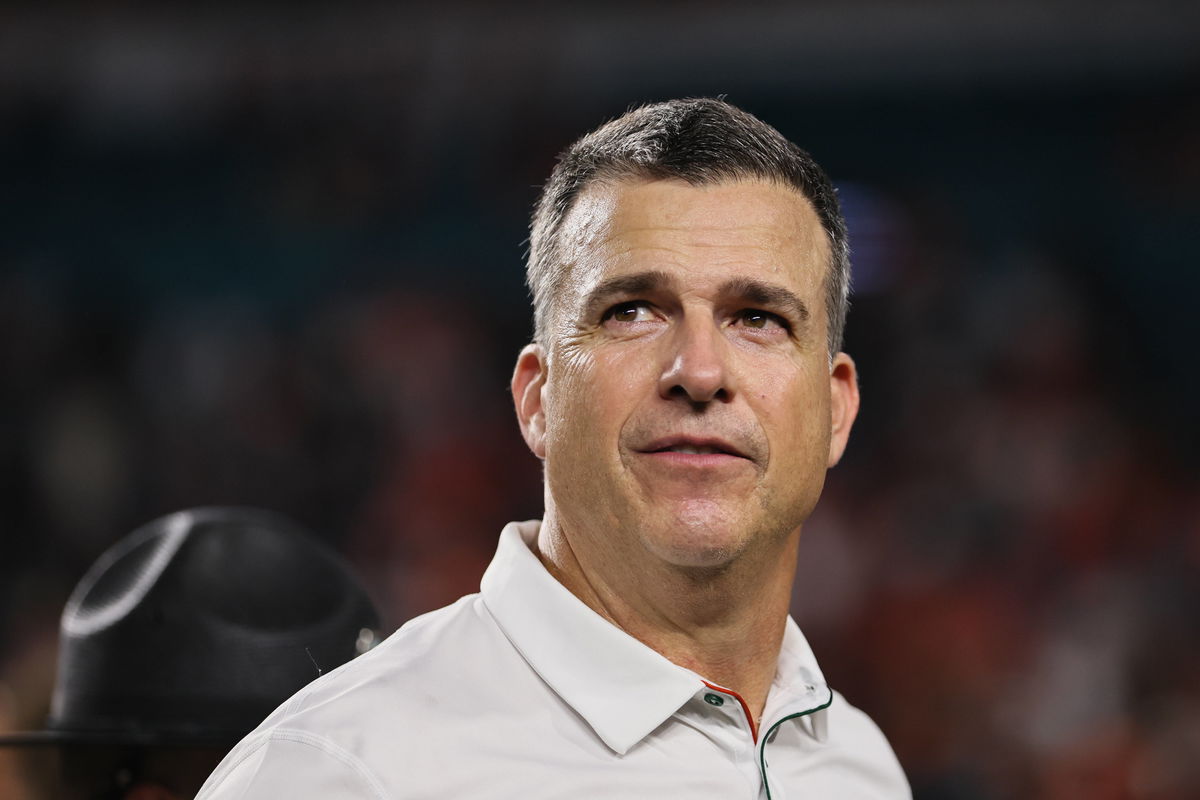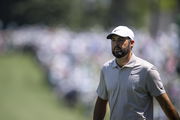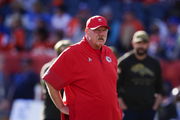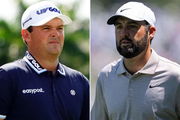

Mario Cristobal’s 2024 campaign at Miami was a turning point in his coaching career. He guided the Hurricanes to double-digit victories for the first time since 2017, with a 10–3 overall, 6–2 ACC record. That performance earned a spot in the Pop-Tarts Bowl, where they narrowly fell to Iowa State in a 42–41 loss. Despite the loss, the season still felt like an improvement. If you’ve been following Cristobal’s closely, you know his work ethic isn’t limited to the field; it is bred in his blood. Born to second-generation Cuban-American parents, Clara and Luis Sr., Mario grew up with parents who defected from Castro’s Cuba and brought two sons to South Florida.
Watch What’s Trending Now!
Who are Mario Cristobal’s parents?
Mario Cristobal is the son of Luis Cristobal Sr. and Clara, both Cuban exiles who escaped Fidel Castro’s regime in the 1960s. Luis was a political prisoner in Cuba when he escaped; Clara escaped on her own. They founded Coral Terrace, South Florida, as their new home, where they raised their family and instilled strong Catholic values and a tough work ethic in their children, Mario and his older brother, Luis Jr. Luis Sr. also opened a car-battery store, while Clara served as a clerk to supplement the home on their meager pay.
ADVERTISEMENT
Their house became a fortress of discipline. Mario remembers being taken around the backyard military-style by his father as a way to instill respect and toughness. And the lessons retained by the time Mario was at Miami were evident in his intensity and leadership.
Where did Clara and Luis Cristobal Sr. meet?
Clara and Luis Sr. met in Miami, each having escaped Cuba independently during the 1960s. There isn’t a proper “how they met” story well chronicled, but they united in South Florida, both Spanish‑language immigrants making new lives. Their early life together isn’t varnished in public records, but what’s evident is their mutual resilience, two refugees making a life in Miami, raising their boys with pride in American opportunity and Cuban heritage.
ADVERTISEMENT
What is the ethnicity of Mario Cristobal’s parents?
Clara and Luis Cristobal Sr. were born in Cuba and are Cuban-American Hispanics. They subsequently migrated to the U.S., where they became naturalized Americans. Mario and his brother are second-generation Cuban-American, Spanish-speaking from home, having learnt Cuban customs growing up in multicultural Miami.
ADVERTISEMENT
Inside Mario Cristobal’s relationship with his parents
The relationship between Mario Cristobal and his parents is interwoven into all aspects of his character. Interviews have outlined how he never forgot his father’s strict adherence to discipline, daily drill work in the backyard, judo training, and childhood discipline that rewarded strength and character more than anything else. That is reflected in the passion he applies as head coach: extended hours, demanding standards, and refusal to accept complacency.
Cristobal’s mom, Clara, was just as influential. She worked outside of the house and brought her kids up solid in the faith and neighborhood toughness. Sadly, she died in March 2022. “She’s fighting,” Mario Cristobal informed reporters when she was in the hospital due to an unspecified illness. “That’s the best way to say it, and that’s exactly what I expected to see out of her.” Their legacy continues to influence Mario’s coaching philosophy, and his emotional investment in the program reflects that it’s not professional; it’s personal.
ADVERTISEMENT
Top Stories
Scottie Scheffler Faces Scrutiny After Taking Out Anger on Golf Club at WM Phoenix Open: ‘Washed’

Jordan Spieth Throws Bizarre Temper Tantrum as Opening Round at WM Phoenix Open Becomes a Challenge

Rob Gronkowski Demands Severe Punishment for Andy Reid After Bill Belichick Snub

PGA Tour Split Into Two as Scottie Scheffler Confirms Stance on Patrick Reed’s Return

Multiple PGA Tour Pros Stopped from Playing as WM Phoenix Open Round Is Canceled Over Recurring Problem

Drake Maye Reveals Shoulder Injury Update as Patriots QB Announces News On Super Bowl Availability

ADVERTISEMENT
ADVERTISEMENT
ADVERTISEMENT
.png)
.png)
.png)



